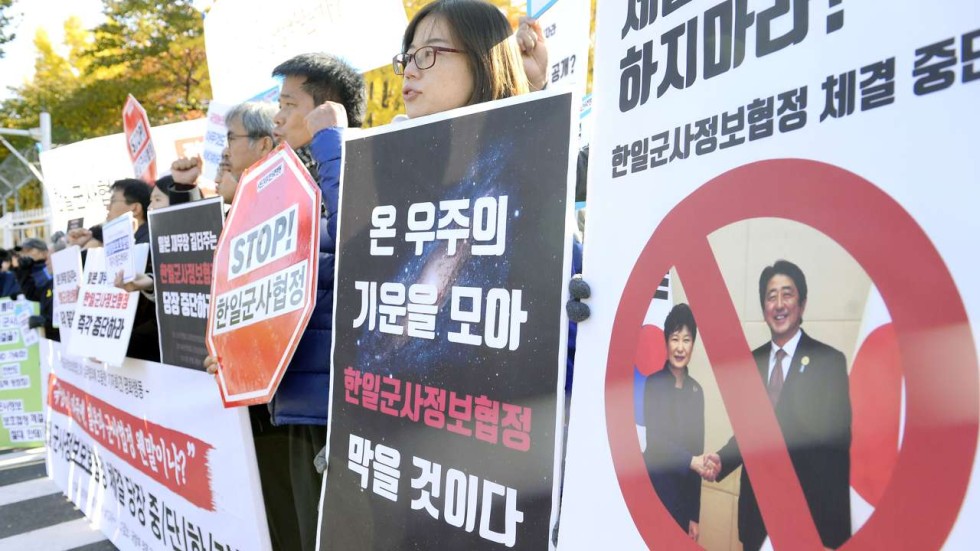SEOUL, Nov. 18 (Xinhua) -- Almost two-thirds of South Koreans opposed the signing of a bilateral military intelligence pact with Japan, on which the two countries resumed dialogue earlier this month, as Japan has yet to sincerely apologize for atrocities during World War TWO, a local pollster survey showed on Friday.
According to the Gallup Korea poll, 59 percent of respondents said they object to the military accord with Japan because Seoul must not strengthen military cooperation with Tokyo unrepentant of its brutalities during the devastating war.
Seoul and Tokyo resumed talks on the bilateral deal earlier this month to directly exchange military intelligence on the Democratic People's Republic of Korea (DPRK)'s nuclear and missile programs.
The two sides initialed the military pact in Tokyo on Monday, and it was passed in South Korea's vice ministers' meeting on Thursday.
The South Korean government is scheduled to approve it at a cabinet meeting next Tuesday, and the presidential ratification will be left for a final agreement.
Three main opposition parties opposed the rapid, unilateral push for the military accord, saying they will propose the impeachment of Defense Minister Han Min-koo.
Former President Lee Myung-bak pushed the deal in 2012, but it failed at the last minutes amid public outcry over the unilateral push without social and parliamentary consensus.
President Park Geun-hye is pushing the hush-hush deal again as public attention is being centered on a political scandal involving her longtime confidante and former aides.
The push for the deal divided public opinion as conservative voters favored the pact, which they believe is an urgent issue to defend their country from "growing nuclear and missiles threats" from the DPRK.
Pyongyang conducted its fifth nuclear test in September, just eight months after detonating its atomic device. The January nuclear test was followed by the launch in February of a long-range rocket.
The Gallup Korea poll showed 31 percent in favor of the accord with Japan as they believe South Korea would benefit from it in terms of collecting military intelligence on the DPRK.
More than half of supporters for the ruling Saenuri Party responded positively to the deal, but about 70 percent of supporters for the three main opposition parties went against it. More than two-thirds of those in their 20s to 40s also saw the pact negatively.
